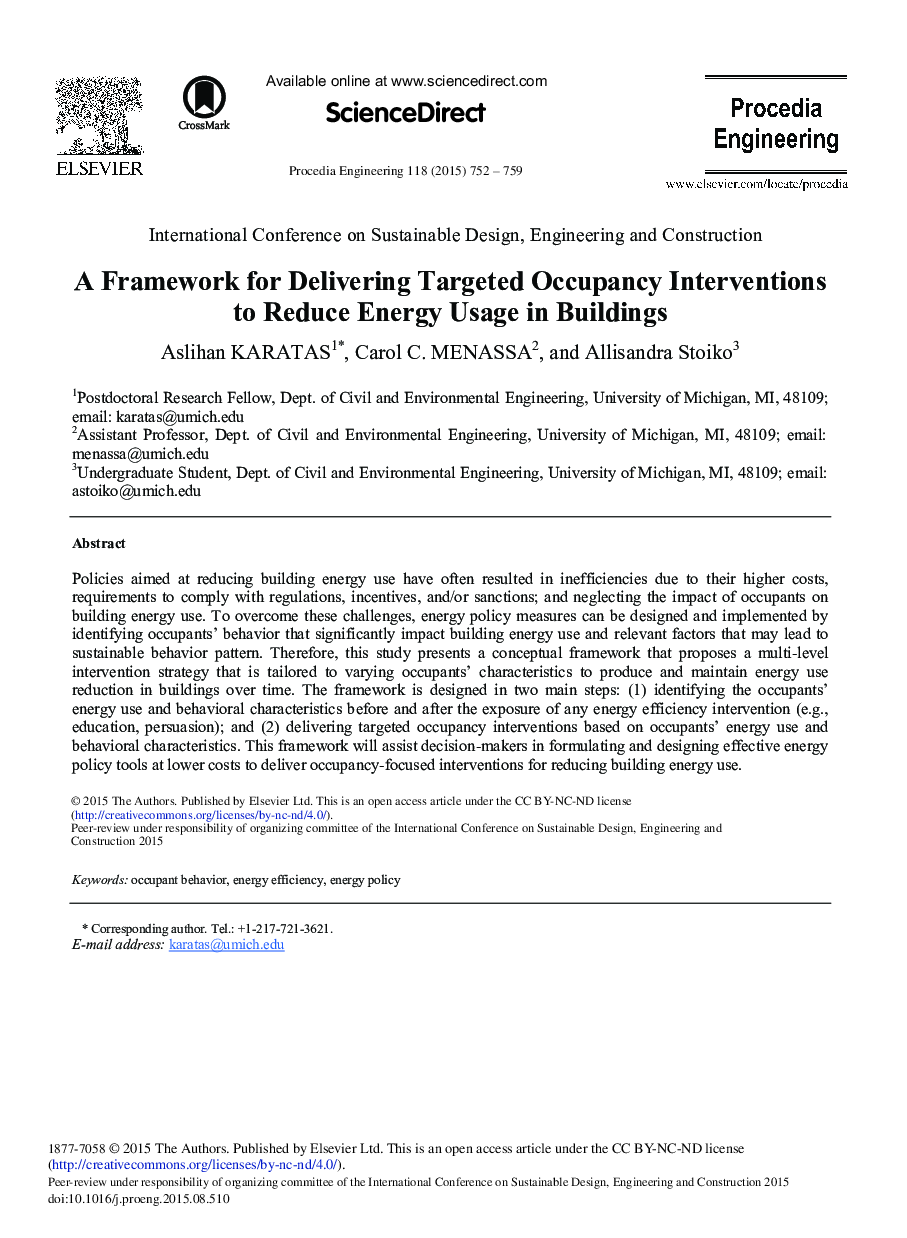| Article ID | Journal | Published Year | Pages | File Type |
|---|---|---|---|---|
| 855656 | Procedia Engineering | 2015 | 8 Pages |
Policies aimed at reducing building energy use have often resulted in inefficiencies due to their higher costs, requirements to comply with regulations, incentives, and/or sanctions; and neglecting the impact of occupants on building energy use. To overcome these challenges, energy policy measures can be designed and implemented by identifying occupants’ behavior that significantly impact building energy use and relevant factors that may lead to sustainable behavior pattern. Therefore, this study presents a conceptual framework that proposes a multi-level intervention strategy that is tailored to varying occupants’ characteristics to produce and maintain energy use reduction in buildings over time. The framework is designed in two main steps: (1) identifying the occupants’ energy use and behavioral characteristics before and after the exposure of any energy efficiency intervention (e.g., education, persuasion); and (2) delivering targeted occupancy interventions based on occupants’ energy use and behavioral characteristics. This framework will assist decision-makers in formulating and designing effective energy policy tools at lower costs to deliver occupancy-focused interventions for reducing building energy use.
